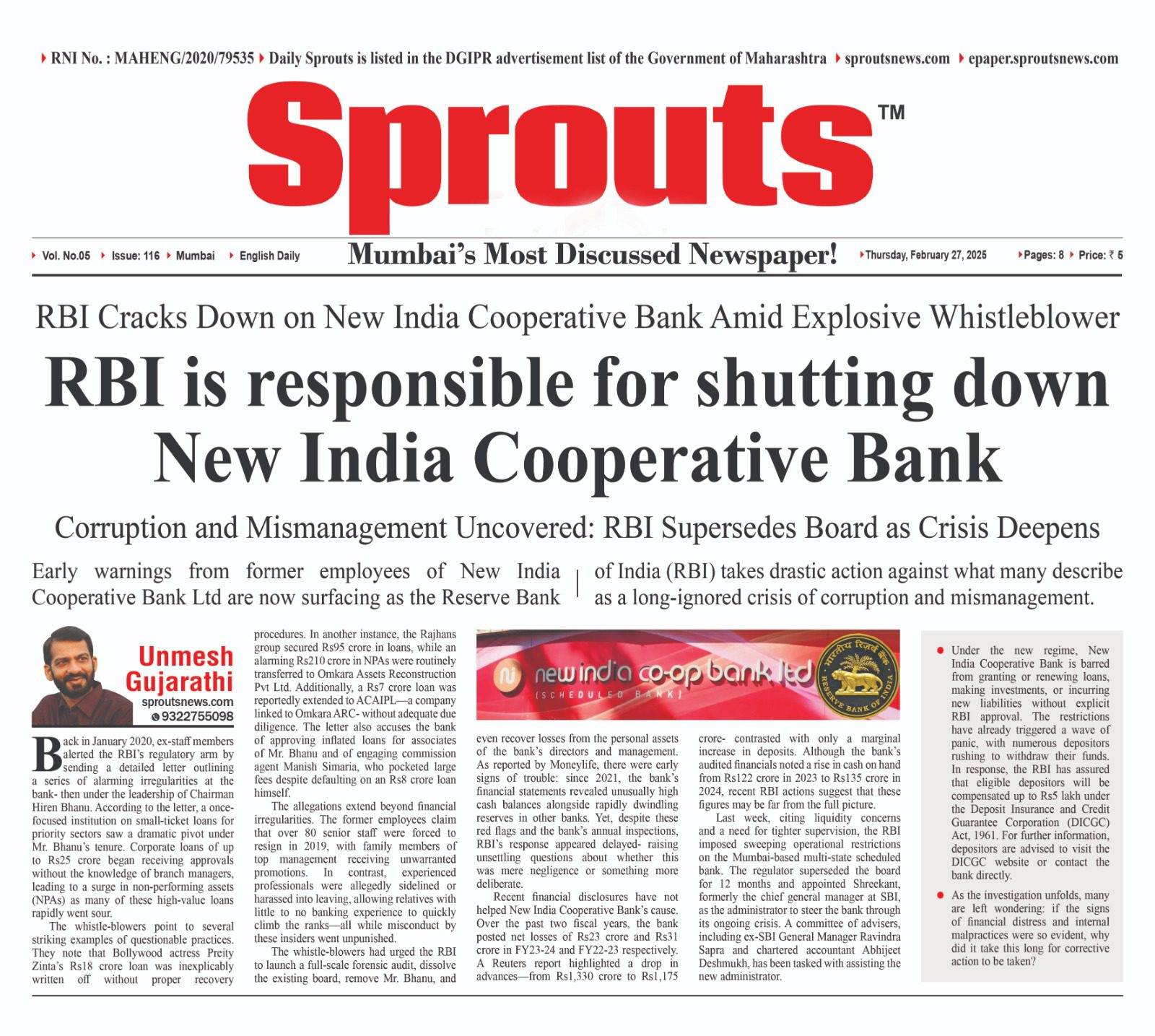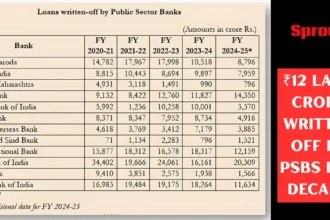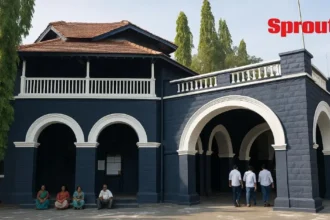• RBI Cracks Down on New India Cooperative Bank Amid Explosive Whistleblower
• Corruption and Mismanagement Uncovered: RBI Supersedes Board as Crisis Deepens
Unmesh Gujarathi
Sprouts News Exclusive
Early warnings from former employees of New India Cooperative Bank Ltd are now surfacing as the Reserve Bank of India (RBI) takes drastic action against what many describe as a long-ignored crisis of corruption and mismanagement.
Back in January 2020, ex-staff members alerted the RBI’s regulatory arm by sending a detailed letter outlining a series of alarming irregularities at the bank- then under the leadership of Chairman Hiren Bhanu. According to the letter, a once-focused institution on small-ticket loans for priority sectors saw a dramatic pivot under Mr. Bhanu’s tenure. Corporate loans of up to Rs25 crore began receiving approvals without the knowledge of branch managers, leading to a surge in non-performing assets (NPAs) as many of these high-value loans rapidly went sour.
The whistle-blowers point to several striking examples of questionable practices. They note that Bollywood actress Preity Zinta’s Rs18 crore loan was inexplicably written off without proper recovery procedures. In another instance, the Rajhans group secured Rs95 crore in loans, while an alarming Rs210 crore in NPAs were routinely transferred to Omkara Assets Reconstruction Pvt Ltd. Additionally, a Rs7 crore loan was reportedly extended to ACAIPL—a company linked to Omkara ARC- without adequate due diligence. The letter also accuses the bank of approving inflated loans for associates of Mr. Bhanu and of engaging commission agent Manish Simaria, who pocketed large fees despite defaulting on an Rs8 crore loan himself.
ALSO READ: SHOCKING NAVI MUMBAI LAND SCAM.
The allegations extend beyond financial irregularities. The former employees claim that over 80 senior staff were forced to resign in 2019, with family members of top management receiving unwarranted promotions. In contrast, experienced professionals were allegedly sidelined or harassed into leaving, allowing relatives with little tohe ranks—all while misconduct by these insiders went unpunished.
The whistle-blowers had urged the RBI to launch a full-scale forensic audit, dissolve the existing board, remove Mr. Bhanu, and even recover losses from the personal assets of the bank’s directors and management. As reported by Moneylife, there were early signs of trouble: since 2021, the bank’s financial statements revealed unusually high cash balances alongside rapidly dwindling reserves in other banks. Yet, despite these red flags and the bank’s annual inspections, RBI’s response appeared delayed- raising unsettling questions about whether this was mere negligence or something more deliberate.
Recent financial disclosures have not helped New India Cooperative Bank’s cause. Over the past two fiscal years, the bank posted net losses of Rs23 crore and Rs31 crore in FY23-24 and FY22-23 respectively. A Reuters report highlighted a drop in advances—from Rs1,330 crore to Rs1,175 crore- contrasted with only a marginal increase in deposits. Although the bank’s audited financials noted a rise in cash on hand from Rs122 crore in 2023 to Rs135 crore in 2024, recent RBI actions suggest that these figures may be far from the full picture.
Last week, citing liquidity concerns and a need for tighter supervision, the RBI imposed sweeping operational restrictions on the Mumbai-based multi-state scheduled bank. The regulator superseded the board for 12 months and appointed Shreekant, formerly the chief general manager at SBI, as the administrator to steer the bank through its ongoing crisis. A committee of advisers, including ex-SBI General Manager Ravindra Sapra and chartered accountant Abhijeet Deshmukh, has been tasked with assisting the new administrator.
Under the new regime, New India Cooperative Bank is barred from granting or renewing loans, making investments, or incurring new liabilities without explicit RBI approval. The restrictions have already triggered a wave of panic, with numerous depositors rushing to withdraw their funds. In response, the RBI has assured that eligible depositors will be compensated up to Rs5 lakh under the Deposit Insurance and Credit Guarantee Corporation (DICGC) Act, 1961. For further information, depositors are advised to visit the DICGC website or contact the bank directly.
As the investigation unfolds, many are left wondering: if the signs of financial distress and internal malpractices were so evident, why did it take this long for corrective action to be taken?




